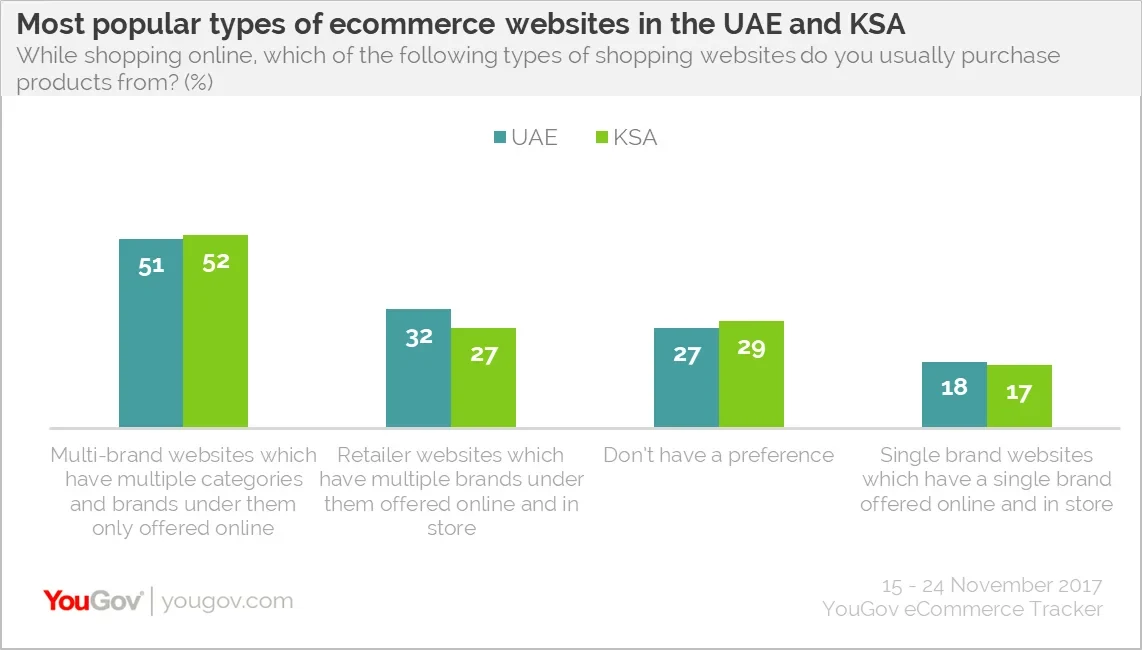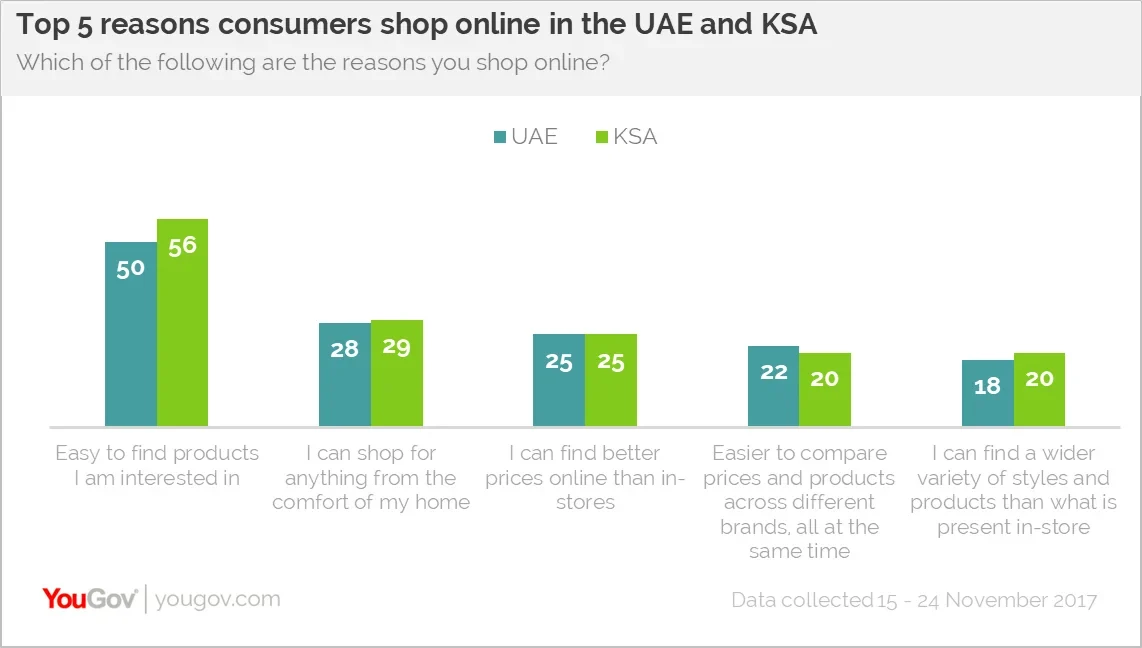
Multi-brand online-only stores most popular choice for half of UAE and KSA online shoppers
Fresh research into attitudes and behaviour towards ecommerce in the UAE and Saudi Arabia has found that 51% of UAE consumers and 52% of KSA consumers say websites which have multiple categories and brands under them which are provided only online are where they do most of their online shopping.
The YouGov eCommerce Tracker, a syndicated study of online consumer behaviour launched in 2017, interviews 2,000 consumers every 3 months in the UAE and Saudi Arabia. The first set of results show retailer websites which have a physical presence in store and online are less popular, preferred by 32% of UAE online shoppers; 27% in Saudi Arabia. Meanwhile single brand websites which have a physical in store and online presence are favored by just 18% and 17% of UAE and KSA consumers respectively.

The most popular products to buy are electronics, favoured by 89% and 88% of consumers in the UAE and KSA respectively - particularly males (90%). In the 3 months prior to when the study was conducted, mobile phones were the hottest electronic product flying through online check outs – according to 43% of consumers in the UAE, 32% in KSA.
The research found half of UAE respondents, (56% in KSA), cite the ease with which they can find products they are interested in as the main reason they shop online. Over a third, particularly those aged 35+ in the UAE and 35-39 in KSA, also like the fact that they can shop for anything from the comfort of their own home.
Interestingly however, despite craving an easy navigation path to their most favoured products, the study found a negative association with that need. 29% of UAE consumers, particularly Emiratis (41%), and 26% of consumers in Saudi Arabia claim the biggest turn off online shopping is the way it makes you shop impulsively.

Finding the right price point is a key factor in deciding to shop online with a quarter of respondents in both countries claiming they find better prices online than in store. Around one in five also find it is easier to compare prices and products across different brands. Price comparison is particularly important for those aged 40+.
When it comes to where people buy online, in the UAE the results illustrate there isn’t a particular preference over whether a website is local (38%) or international (39%) with almost equal proportions choosing each, while 24% don’t have a preference. By contrast, in Saudi Arabia, most consumers prefer international sites (44%), while 26% favour local sites and 30% don’t mind. The study reveals offering product variety could engage more consumers in local sites - 29% of respondents in both countries respectively choose to buy from an international site because of the product variety.
Commenting on the findings, YouGov Head of Custom Research – MENA, Nehal Jibouri said, “As one of the fastest growing ecommerce markets in the world, it’s vital for businesses in the Middle East to stay shopper-ready to maintain pace. We’ve designed the eCommerce Tracker to provide intelligence about consumers' day-to-day online shopping preferences, aversions and limitations, both at an industry and brand specific level, so that businesses can listen, act and pre-empt customer needs. Our latest findings show variety and convenience are key to appeal to consumers in both the UAE and Saudi Arabia who want products quickly and at the right price point. However, finding the right balance of communication around products is important to ensure consumers aren’t put off by being pushed to shop when they don’t plan to.”
Data from the custom YouGov eCommerce Tracker, conducted among 1,005 consumers in the UAE and 1,010 consumers in Saudi Arabia, between 15 and 24 November 2017. Data is broadly representative of the adult online population in both countries.
For more information about the YouGov eCommerce Tracker and to discuss these insights in further detail, please contact Nehal Jibouri, Head of Custom Research - MENA at nehal.jibouri@yougov.com or call +971 4 369 4298.